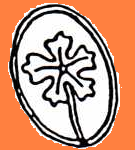 Musik-Edition Lucie Galland
Musik-Edition Lucie Galland Musik-Edition Lucie Galland
Musik-Edition Lucie Galland|
Princess Eudoxie, niece of the Emperor........................................................ Rachel, Éléazar's daughter........................................................................... The Jew Éléazar.......................................................................................... Cardinal Jean-François de Brogny, President of the Council......................... Léopold, Count of the Empire..................................................................... Ruggiero, Grand Seneschal of the City of Constance.................................... Albert, corporal of the Imperial Guard......................................................... Herold-at-arms to the Emperor................................................................... Officer of the Emperor................................................................................. Major-domo to the Emperor....................................................................... An executioner............................................................................................ Two men of the people................................................................................ Emperor Sigismond..................................................................................... Confidant of the Inquisition.......................................................................... |
soprano soprano tenor bass tenor bass bass bass tenor bass bass tenor, bass dumb role dumb role |
Chorus, supernumeraries, ballet: Prince-electors, imperial dukes and duchesses, imperial counts and countesses, knights, noble ladies, cardinals, bishops, priests, friars, penitent women, standard bearers, officers, herolds, soldiers, imperial retinue, citizens of Constance, jews, jewesses, people, executioner, ballet (in Act 1; large ballet-pantomime in Act 3.) Orchestra: 2 (picc), 2 (ca), 2, 2 - 4 (2 à pist), 4 (2 à pist), 3, oph - timp, perc - harp, org, 2 guit - strings Incidental music: tambour, bells in g and c" Born on May 27, 1799 in Paris, the french composer Fromental Halévy was the eldest son of Julie Meyer, native of Lorraine, and of Elie Levy. The latter was German and left Fürth in Bavaria shortly after the French Revolution, settling in France. Mozart was Fromental Halévy's lifelong model for dramatic composition, another was Cherubini his "master and friend". With numerous operas to his credit, he was as successful at the Paris Opera House as at the Opéra-Comique. This was a rare feat. According to Théophile Gautier, in the spring of 1838, after the successful performances of Guido et Ginévra, Halévy was - along with Auber -, already "at the summit of the French school". Wagner recommended La reine de Chypre (1841) to young opera composers as a "classic model" and Berlioz hailed the opéra-comique Le val d'Andorre (1848) after its opening as "a masterpiece". Still the immense and continuing popularity of La Juive (libretto by Eugène Scribe, opening on February 23, 1835 at the Opéra) established firmly Halévy's fame in France and most of Europe. This opera reflects particular concerns of 1830s France. The reign of Charles X, marked by a certain clericalism, came to an abrupt end with the July Revolution of 1830. The liberal bourgeoisie, often influenced by Voltaire, now had control of the country. In this context Louis Véron, the new "director-manager" of the Opéra, financially dependent on the banker Aguado, commissioned two grand opéras in five acts from Scribe. Both, La Juive and Les Huguenots (1836, set by Meyerbeer) were designed to demonstrate to a broad public the cruel way in which the (Catholic) church once treated heterodox minorities. Both end tragically, not only with the physical annihilation of members of these minorities, but also, more importantly, with their personal choice of martyrdom. In the former, Rachel and her father disdain the lifesaving conversion offered to them. This heroic act, surpassing all limits, which sealed their belonging to "particular" religious communities, Jewish or Protestant, represented an indisputable moral victory over the "united and universal" church. Contemporaries, such as Louis de Bonald (in 1836) and Philarète Chasles (in 1845) considered La Juive as "an apotheosis of Judaism", whereas the concervative-legitimist press engaged in a fierce and unrelenting battle against the opera. Nevertheless, the public had already taken La Juive "under its omnipotent protection" as Jules Janin wrote on March 1835 in the Journal des débats. The opening production of the opera was too long. The changing of the elaborate sets which "really resurrected the Middle Ages" necessitated several intermissions of more than 45 minutes each. Since they could not be shortened, the score was substantially cut and the orchestral score, printed in 1835, reflects all these reductions. But on the other hand, the piano-vocal scores published during Halévy's lifetime by three successive Parisian publishers, ignore all these cuts and match the original in the composer's autograph, except for two recitatives. As these sources reveal the opera in a much more elaborate form, it seemed desirable to make the complete Juive available also in orchestral score. This is what the new edition has accomplished. Recently the opera has been performed, though again with many cuts, in German (Bielefeld 1988, Nürnberg 1993, Dortmund 1995) and in French (Ludwigshafen 1997). Perhaps the time has come to present the public with the complete La Juive, an opera that Gustav Mahler ranked with "the highest accomplishments ever created". Karl Leich-Galland |